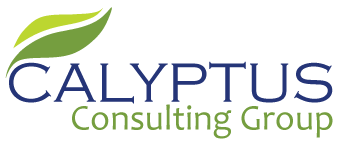Business Competencies Courses
Our training catalog offers a wide range of individual courses that can stand alone or be integrated into a training program or curriculum. In addition to our current off-the-shelf training catalog, Calyptus offers customization services to ensure that training is tailored to the needs of the participating individuals and teams.
Some courses are available as e-learning modules, which can be found here.
Some courses are available as e-learning modules, and all classes can be delivered as webinars on request.
Train-The-Trainer
This 2-day program covers trainer techniques and requirements; provides detailed notes for potential instructors on how to manage a training program; and describes management techniques to keep programs running smoothly. Topics covered include qualifications and skills for trainers; the 25 common mistakes in training; role of the trainer; teaching adults; preparing for the program; opening the program; giving presentations; flip-charting techniques; facilitating exercises and conducting case discussions; asking questions in training environments; transitioning from one module to another; and closing the program. Participants will have an opportunity to apply their learning.
As a result of attending this course, participants will:
Learn trainer techniques and requirements
Have detailed notes on how to manage a training offering
Acquire management techniques to keep training programs running smoothly
Establish a core of qualified instructors
TQM/
Continuous Improvement:
Team Training
This 2 ½-day program provides teams and team members with information on how to implement TQM and construct continuous improvement projects.
As a result of attending this course, participants will:
Learn key TQM concepts
Apply a CI model
Learn Six Sigma Concepts
Understand team power and continuous improvement
Leading Change
This 1-day training is designed to be a practical, hands-on roadmap to help participants quickly develop strategies for assessing change readiness within the organization. This training offers exercises, handouts, assessments, and structured experiences as applications for use on the job. As a result of the training, participants should be able to identify the key internal and external forces driving change in an organization and develop an integrative model for leading people through emotional and environmental changes to assume a more effective leadership role.
As a result of attending this course, participants should be able to:
Understand the perceptions of change and the forces causing change
Experience personal change
Study a model for understanding the human responses to change
Understand change resistance
Identify the perceived losses and opportunities from change
Develop change resilience in yourself and others
Learn the actions for introducing/leading change
This ½-day course provides the basis for defining and implementing innovation from suppliers. The course will cover how to organize for innovation and how to assess opportunities.
As a result of attending this training, participants will be able to:
Recognize innovation
Improve the number of innovative ideas implemented
Monitored suppliers for innovation
Create opportunities for supplier innovation
Getting Innovation into Daily Supply Management Thinking
Purchasing Simplification
This 1-day program provides and applies proven ideas to simplify the whole procurement cycle. Streamline operations and more efficient procurement methodologies are covered with case studies.
As a result of attending this course, participants will:
Participants will learn about EDI, barcoding, the purchasing card, and how each can reduce time spent on non-value-added activities, both within and outside the Purchasing Department
Participants will learn the concept of activity-based costing (ABC) and, working in groups, will complete exercises designed to illustrate the principles of strategic cost management tools
Participants will explore techniques such as flow charting and JIT to improve the quality of performance and reduce cycle times in key purchasing responsibilities
Value Analysis
This 1-day program provides an overview of the opportunities found when using value analysis techniques. These opportunities pertain to both products and services and require cross-functional company involvement and supplier cooperation. The methods can also be applied to improve supply chain processes and internal processes. Participants will use a proven tool to apply it to a case study provided by CCG and then to their own commodities.
As a result of attending this course, participants will:
To describe the use of value analysis in streamlining supply chain operations and reducing costs
To train participants in the fundamentals of value analysis and value management
To provide an overview of the steps of the value analysis process
To allow participants an opportunity to develop plans on applying the tool to their respective commodity categories
Improving Communication in Procurement
This 1-day program provides the skills and knowledge for supply management staff to improve their written communication. Examples from standard supply management communications are provided and evaluated.
As a result of attending this course, participants will be able to:
Organize more effectively for written communications
Receive feedback on their communication skills and develop an improvement action plan
Develop more succinct and accurate written communications and reduce ambiguity
Using Demand Management to Reduce Total Cost of Ownership
This ½-day course addresses how a company can increase its cost savings and productivity improvement opportunities with suppliers through usage control, budget reduction, and product/service substitution. Specific ideas will be presented to help your business unit reduce the total costs of working with suppliers by reducing the volume and scope of services and products from vendors. Value analysis techniques will be used to explain how to improve value while reducing costs.
As a result of attending this course, participants will:
Distinguish between price and non-price cost reduction
Develop plans to reduce usage and budgets for vendor management
Implement different methods of reducing costs through product and service substitution
Review internal processes and procurement procedures to streamline and consolidate costs
Business Case Development
This 1-day program guides you in building and selling a business case to peers, management, and third parties.
As a result of attending this course, participants will:
Identify and communicate performance issues to key stakeholders
Use business case compilation as an audit for project assumptions, data, and conclusions
Obtain conceptual buy-in and support from the organization
Calculate and prioritize project costs and benefits
Fulfill information needs to obtain project approval
Applying Benchmarking Principles to Purchasing
This 1-day course applies the benchmarking process to purchasing. It includes case studies and exercises focused on purchasing. This program will trace the benchmarking process using a purchasing example and consists of a section on purchasing data research and analysis. A significant portion of the program is devoted to developing and implementing a supply management strategy.
As a result of attending this course, participants will:
Learn the basic steps in the benchmarking process
Understand how to apply the process to Purchasing
Be able to employ benchmarking in their normal course of work
Apply the benchmarking process to commodities purchased by the company
Develop a plan for personal use of benchmarking
Creating Value for the Organization
This program guides how Supply Management activities can ensure greater value to organizations. Strategies, staff capability, and maturity models are used to help participants craft value-based strategy and implementation plans to increase supply management’s contribution to the bottom line.
As a result of attending this course, participants will:
To describe how to develop a supply management strategy
To indicate the specific ways supply management can add value to an organization
To provide information on how to improve professionalism
To specify how to diagnose an effective sourcing strategy
Customer Service Excellence
The purpose of this 2-day program is to provide an introduction to the basic tenets of customer service management. Participants will learn to establish a service orientation and develop measures to improve internal and external satisfaction.
As a result of attending this course, participants will be able to:
Better manage Customer Expectations – Your Organization will evaluate Customers, with a focus on understanding their needs and expectations, and how to meet these needs
Improve Time Management – Participants will focus on multitasking, prioritization, and consolidation techniques to allow them to keep pace with high volumes while improving the quality of their work
Enhance Personal Communication – Techniques for effective communication will be examined so that participants can learn how to avoid common communication barriers and improve active listening skills
Resolve Conflicts Effectively – Participants will learn to recognize and diffuse potential conflict situations. They will also receive feedback on their conflict resolution styles
Additional Cost & Price Analysis
This 1/2-day program covers advanced CAPA topics, including total cost, total cost of ownership, target costs, fully loaded labor rates, and profit analysis.
As a result of attending this course, participants will:
Understand the elements of Cost and Price Analysis
Learn to apply CAPA techniques to both products and services
Better understand when to apply the various potential techniques in more complex procurements
Grasp the impact of target costs, cost curves, and other leading-edge concepts
Develop a plan to implement CAPA in their activities
Financial Analysis
The 1-day program focuses on financial decision-making in engineering. Participants will learn how to choose among a multitude of potentially rewarding projects, considering risks, returns, and customer satisfaction.
As a result of taking this course, participants will gain an understanding of:
To set forth the reasons for accomplishing effective cost and price analysis.
To train participants in recognizing, evaluating, and negotiating elements of suppliers’ costs and prices.
To provide information on how to investigate further price trends and the impact of industry/market developments.
To allow participants the opportunity to apply knowledge through a series of your organization’s specific cases and exercises.
Pricing Techniques
Nine (9) specific techniques used by suppliers will be discussed in this ½-day program. Negotiation strategies and techniques to counteract will be presented.
As a result of attending this program, participants will be able to:
Determine whether the price is fair and reasonable
Ensure your company receives the best possible prices
Assess whether a reduction in price is possible
Total Cost Management
This 2-day program covers financial analysis, cost and price analysis, target pricing, supplier pricing techniques, and total costs.
As a result of attending this course, participants will be able to:
Conduct price, cost, margin, target cost, and should cost analyses
Analyze learning curve and experience curve factors
Consider various cost considerations for New Product Introductions
Reduce total cost of ownership
Use templates to make business decisions based on Total Cost
Use Value Analysis and its benefits

